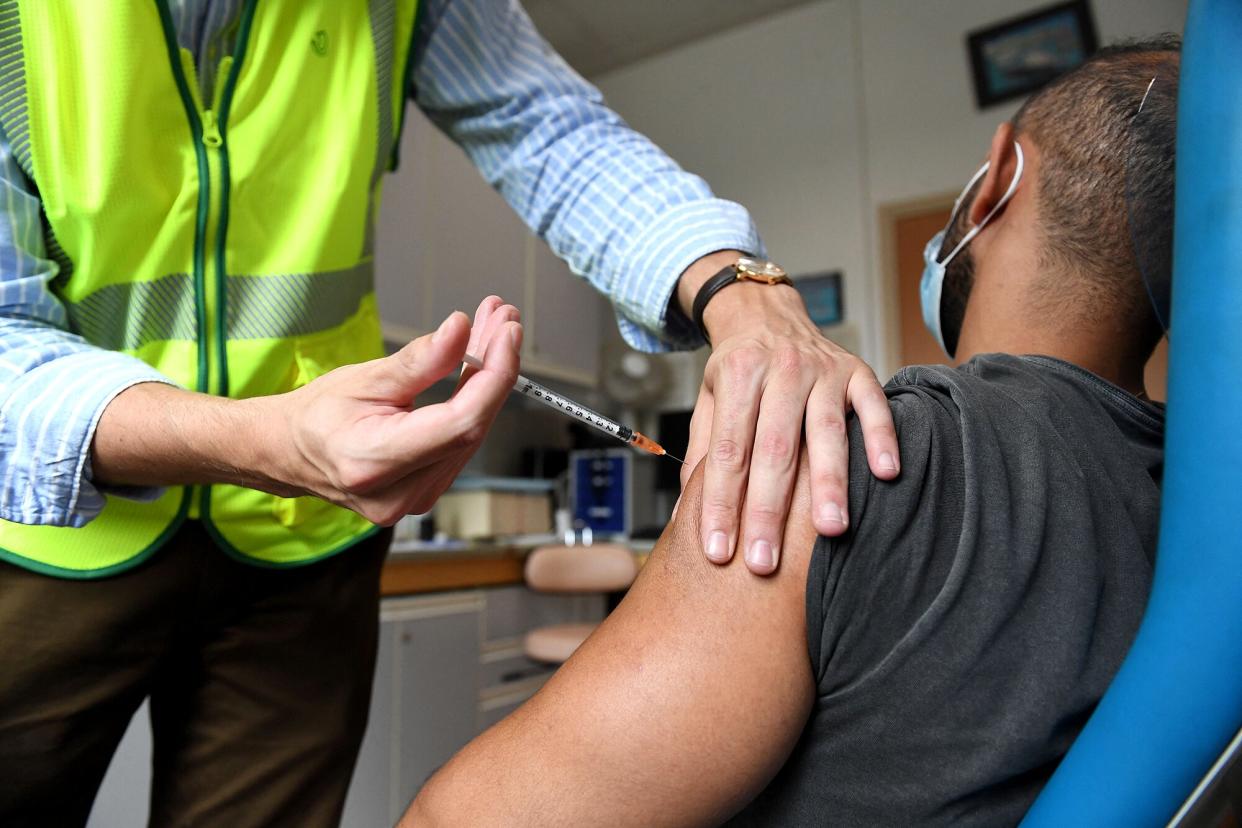Monkeypox Vaccine Maker Details Concerns with U.S. Plan to Stretch Doses Due to Limited Supply

- Oops!Something went wrong.Please try again later.
ALAIN JOCARD/POOL/AFP/Getty Man getting monkeypox vaccine
The manufacturer for the monkeypox vaccine is sharing concerns after the Biden Administration announced plans to stretch the nation's limited supply by splitting doses and changing how they are administered.
Paul Chaplin, CEO of Bavarian Nordic, which manufactures the Jynneos vaccine, wrote a letter to Health and Human Services Secretary Xavier Becerra and Food and Drug Administration Commissioner Robert M. Califf detailing "reservations" the company has about the dose-sparing approach "due to the very limited safety data available."
In the letter, obtained by The Washington Post, Chaplin said "it would have been prudent" to conduct studies on the strategy that could provide more safety information.
"We have been inundated with calls from U.S. state government officials with questions and concerns regarding the ID administration," he wrote. "We will of course align our responses with our colleagues at the CDC, but we believe this alignment would have been better served before any announcement."
On Wednesday, Becerra addressed the concerns but noted that the Biden Administration is confident in the vaccine strategy.
"We've had conversations with them about this, and so has FDA," Becerra said. "We wouldn't have moved forward unless we thought it was safe and effective, and if FDA hadn't dotted its I's and crossed its T's."
RELATED: Confirmed Cases of Monkeypox Surpass 10,000 in the United States
The Biden Administration announced the plan Tuesday, stating that the emergency declaration would permit providers to administer one-fifth of the current dose of the Jynneos vaccine into the skin instead of a full dose into underlying fat. Califf indicated last week that the FDA was considering the use of a different injection method which is known as intradermal injection.
A small dose can be used with intradermal injection because the vaccine is "staying in the skin; you're not going through the skin," Dr. Daniel Griffin, an infectious disease specialist at Columbia University, told CNN.
The method — which was previously used for flu and rabies vaccines — produces an immune response due to dendritic cells which are found in the skin. "The skin has special cells that are very good at helping a vaccine stimulate the body's immune system," epidemiologist Dr. Jay Varma told the outlet.
"They live in the skin, and they're better at teaching the immune system what they need to respond to," he added.
The Jynneos monkeypox vaccine is currently administered in two doses under the skin. According to The Washington Post, the new strategy may lead people to need additional doses if the same level of protection is not found. Additional training of local health officials may be needed to properly administer the shots.
As of Monday, the US has shipped more than 600,000 doses of the monkeypox vaccine to states and jurisdictions. According to the CDC, there are currently more than 10,300 confirmed cases of monkeypox in the United States.

